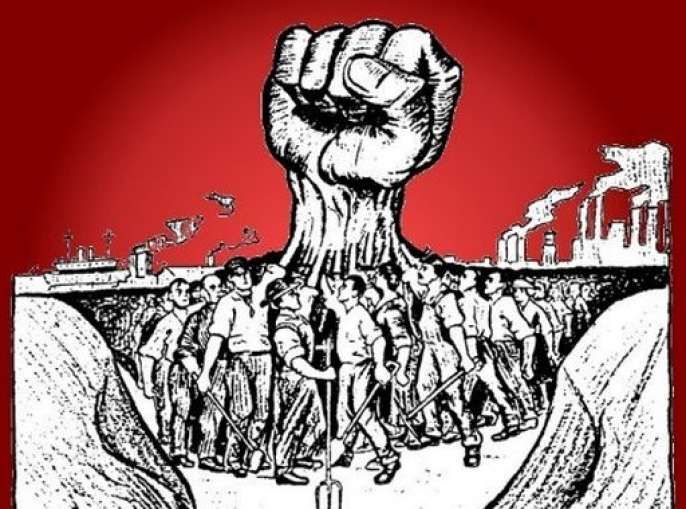Socialism Is Still In India?
Jan 31, 2019 • 5 views
Despite major strides in economic reform over the past 30 years, major aspects of the Indian economy retain a smothering level of government involvement.Narendra Modi’s popularity suggests India could witness a permanent shift away from the past—a tectonic shift to the right in India’s economic discourse. I doubt we are so lucky. Rather, the reflexive reach for socialist-style solutions is likely to prove a hard habit to kick.
What am I talking about—socialist policies in the post-license raj era? No other term better captures the heavy state intervention existing in too many markets. Socialist policies include public sector undertakings and price controls. They include market micro-management for which the regulatory objective long ago ended, such as the Agriculture Produce Marketing Committee (APMC) Acts or setting targets for bank lending. These are state-run for the sake of keeping control with the state, when less controlling alternatives exist—hence the term socialism.
The details of Modi’s economic agenda remain murky for the moment, but he has spoken out against socialist strategies. Lighten the regulatory burden, shrink the government footprint. I contend that three factors will help make this shift away from socialist economic policies a permanent one.

First, as recent financial market performance would imply, a pro-business style of government at the centre holds the potential to return India to the higher growth trajectory of the last decade. Ideally this will be done by facilitating manufacturing growth. Manufacturing produces better jobs and the sort of inclusive growth that benefit incumbents. It will take time and hard work to make the business environment more inviting to manufacturing, but results should be visible within five years. Good results should help re-election and continued centre-right economic policies.
Second, Modi has indicated a desire to tackle labour reform. Indeed, he will be hard-pressed to advance job creation without it. Trade unions and socialist policies have a symbiotic coexistence. Unions help block reforming labour regulation or reducing government holdings of public sector undertakings (PSUs). This protects union membership.
Accordingly, the decline of one often leads to decline in the other. This is a pattern seen in many countries having already undertaken such reforms. If Modi reforms labour markets, declining political power for trade unions in India will weaken the impulse towards socialist policies in the future. Third, the most prominent proponents of socialism, the left-wing of the Congress Party, may never recover. The younger generation of Congress leaders is more likely to have an American MBA than student organizer credentials. If Congress regains relevance, it will not likely lean so far left.
Unfortunately, a permanent shift away from new socialist policies will not likely succeed in sweeping out the plentiful vestiges of socialism remaining in Indian government. Another three arguments can be made that their survival is secure.
First, there are limits even to Modi’s power. Many other observers have cautioned that state governments hold the keys to many major reforms. Union labour ministry data shows, for example, that 40% of employees in public sector undertakings (PSUs) work for state-level PSUs. Second, less government means reducing Modi’s own authority. Any leader must maintain party discipline and entice the cooperation of outside groups. Having already reduced the number of cabinet seats, Modi will need to find other enticements for horse trading. He may need to be able to dole out the spoils of big government operations.

Consider PSUs. A year ago Modi advocated their privatization. Recently he has spoken only about revitalizing them. Even if his administration does reform them—which also means lowering their loyalty-generating value to whomever control is given—they remain a tempting target for future administrations.
Modi cannot stay forever. Better for India to privatize PSUs now, especially while markets are so hot. This removes the temptation to return PSUs to the sad, inefficient, politically driven state they are in today. Third, socialism is often populism in disguise, and populism is still popular.Jayalalithaa-style giveaways may be pure populism, but fuel subsidies, commodity trading bans and directed lending are not much better. They have the objective of protecting the poor, but we all know the middle class benefits more.
I can think of no faster path to unpopularity in India than removing energy subsidies, yet Modi cannot succeed in either reining in the fiscal deficit or improving power supply without drastically scaling them back. Modi may yet choose to risk popular hostility, but the reformist path is not a foregone conclusion.
Do not interpret this invective against socialism to imply the government should shrink in all dimensions. Programmes tackling important problems in innovative ways deserve support. The Mahatma Gandhi National Rural Employment Guarantee Scheme (MGNREGS), for instance, should be improved, not discarded. And of course India needs more government provision of public goods such as infrastructure, courts, police, healthcare and education.
Rather than less government, India needs a government restructuring. Shift away from unnecessary socialist meddling and focus on high performance in core areas. Modi’s CEO-style of governance should give confidence in the latter. The former, I fear, will linger like a bad cold. Russell Green is the Will Clayton fellow in International Economics at Rice University’s Baker Institute for Public Policy.
